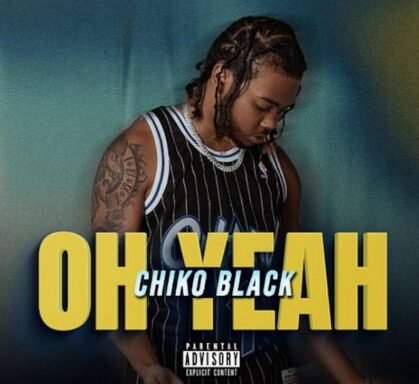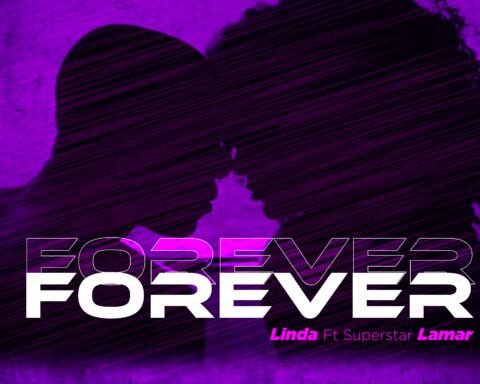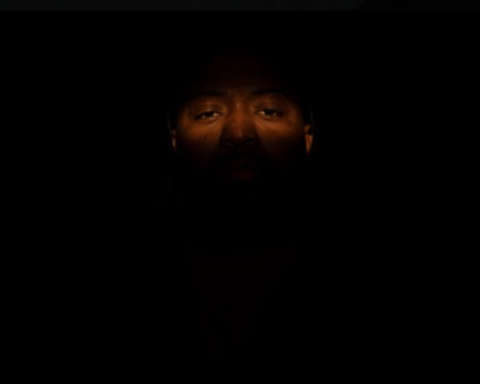Living Legends is a series that spotlights icons in music who are still going strong today. This week, GRAMMY.com spoke with eight-time GRAMMY winner Stephen Marley. The reggae multi-hyphenate is the youngest son of Bob and Rita Marley.
Stephen Marley is a reggae Renaissance man. An eight-time GRAMMY winning singer, songwriter, multi-instrumentalist and producer, Stephen’s nuanced releases retain an authentic Jamaican identity while organically incorporating a broad range of influences. His latest album, Old Soul, continues this boundary-blurring trajectory.
Primarily recorded during the pandemic inside a garage on a family farm in Florida, Old Soul brings renewed luster to reggae classics and standards by the Beatles, Ray Charles and Frank Sinatra alongside stunning originals, each delivered with Stephen’s warm rasp. It’s an endearing and eclectic acoustic set, awash in filigreed guitar strums, tinkling piano keys, swirling flutes, and mesmerizing percussion patterns.
Old Soul’s reflective title track honors Stephen’s musical inspirations — especially his father: “Fast forward to 1981, my dad moved on and so did I, inside I kept his songs alive, so they say I’m an old soul, tribute to the ones who made it all possible/inside me your legacy lives on.” Meanwhile, “Cool As The Breeze” offers a heartrending tribute to loved ones lost.
Stephen continues to build upon his own esteemed legacy. The youngest son of Bob and Rita Marley, the 51-year-old’s musical journey commenced at age 6 when he formed the Melody Makers with his older siblings, sisters Cedella and Sharon and brother Ziggy, the group’s leader. Rita managed the Melody Makers and Bob wrote their first single, 1979’s “Children Playing in the Streets.” In 1981 the spotlight shone on Stephen’s precocious talents when he took the lead on “Sugar Pie.”
A guitarist, percussionist, vocalist and songwriter with the Melody Makers, Stephen also assisted in the production of each of their albums including the GRAMMY winning Conscious Party (1989), One Bright Day (1990) and Fallen Is Babylon (1997). He went on to helm the production on projects by several Marley family members including youngest brother Damian’s GRAMMY winning albums Halfway Tree and the influential blockbuster Welcome To Jamrock.
Stephen’s long-awaited, self-produced debut solo album, the multi-genre spanning Mind Control arrived in early 2007 followed in late 2008 by the stripped-down Mind Control Acoustic — both GRAMMY recipients. Stephen dropped another GRAMMY winner, Revelation Part I The Root of Life as a celebration of roots rock reggae, in 2011. Revelation Part II: The Fruit of Life, released five years later, incorporates various styles that have emanated from reggae’s core.
Old Soul is Stephen’s first full-length project since 2016 and he’s recruited an outstanding cast of collaborators including Grateful Dead founding member Bob Weir, singer/songwriter Jack Johnson, rock-reggae outfit Slightly Stoopid, his brothers Ziggy and Damian and Eric Clapton, whose bold, bluesy guitar riffs color Bob’s “I Shot the Sheriff,” became a No. 1 hit for Clapton in 1974.
GRAMMY.com recently spoke to Stephen Marley about his illustrious, multi-faceted career including his most recent role as music supervisor for the upcoming Marley biopic, Bob Marley: One Love, due in theaters on Feb. 14.
Please tell me about the process of recording the Old Soul album.
It was during the thick of COVID-19; the walls were closing in so to speak. My uncle said “we need a farm” because we didn’t know what the next day would bring in terms of the control the government had. So, we looked and found a little farm.
During that time, I was very much distracted [with regards to making music], but when we came down to the farm, it was nature, escape and I caught back a groove. Old Soul wasn’t what we set out to do, but because of the circumstances, we started jamming in the garage and, well, it felt good, so we said, let’s give the people something to soothe them.
The choices of cover versions on Old Soul are fascinating. How did you decide which songs you would cover?
“Don’t Let Me Down” was suggested by [producer] Salaam Remi, he thought that song would fit in the acoustic style. I know that song from sister Marcia [Griffiths], she did an old version of it; I didn’t really know it was a Beatles tune. [Laughs.]
Most of the others are songs that I play in solitude or just go to songs like “Georgia On My Mind” or “These Foolish Things (Remind Me of You).” It was just part of getting back in the groove, with songs I would sing anyway. I love those songs; it doesn’t matter where they come from.
You also cover reggae classics. “Thanks We Get (Do Fi Dem)” featuring Buju Banton, is a Lee “Scratch” Perry composition initially recorded with his band the Upsetters in 1970. When was the first time you heard that song?
I first heard that song from Reggie [Upsetters’ guitarist Alva “Reggie” Lewis] singing it to me; I had never heard the record.
Reggie is one of the persons credited with teaching my father how to play guitar. This man lived among us, he was always at the [Bob Marley] museum, at [the Marley family-owned] Tuff Gong [studios] and at one point, he stayed at my house, too. He was always singing, “look what we do fi dem, this is the thanks we get, what an ungrateful set,” that’s how I knew it; I never listened to the record until I was going to record it; that’s when I discovered that Scratch wrote it.
“There’s A Reward” is a poignant, motivational song, written by Wailers mentor Joe Higgs, who taught Bob, Bunny Wailer and Peter Tosh how to harmonize. Can you share some of your memories of interacting with Joe Higgs over the years?
From child to young adult until him move on [Higgs passed away in 1999], he was always encouraging. I vividly remember those days when he would come and see my dad. He was like an uncle, he always showed love and encouragement.
Doing that song was definitely one of the highlights of the album for me and Ziggy as well but I really didn’t know the song before recording the album. It really moved me, and I heard the similarities between him and Bob, so I said, yeah, I have to record that one.
Old Soul’s title track was originally written by Jamaican singer/songwriter OMI. What changes did you make to the song’s lyrics?
The song, as he wrote it, was pretty similar to what’s on the album, but it never had my birth year in it, when I graduated, all of those facts. In that sense, I put my life into it, but it already had Bob and Peter in the lyrics (“I knew every Nesta Marley line/You knew that Peter Tosh was fly, in diamond socks and corduroy”).
OMI is a great songwriter, and the song was about people who influenced him, “tribute to the ones who made it possible,” so he was already paying homage.
Your song “Let The Children Play” on Old Soul references the Melody Makers’ first single “Children Playing In The Streets.” What are some of your fondest memories of your years with the Melody Makers?
It is such a significant part of our lives, so any memory puts a smile on our faces. One of my fondest memories is, there’s a place in Half Way Tree in Kingston called Skateland and every Saturday we would perform there. One Saturday, our dad came and watched us, and we didn’t know he was there until after. He wrote our first song, he was pretty into us. He wasn’t a man that would tell you too much, but he would tell his friends, “Yeah, them youth go on good,” he was very proud of us.
The integrity that goes into our music has never changed. From the time we were kids singing “Children Playing in the Streets,” we were always singing social songs, meaningful music. I am 51 now, so do the math.
As the music supervisor of the upcoming Bob Marley: One Love biopic, do you choose which songs are used or how they are used in the film?
I don’t choose alone in that sense. The movie is set in a time period, it’s not Bob’s whole life. There are scenes where he is remembering, and you see him when he is young, but the movie focuses on the Smile Jamaica concert (Dec. 5, 1976), the One Love Peace Concert (April 22, 1978) and the songs he was working on in those times. Anything to do with the music in the film runs through me.
I just came back from California to finish up some of the music. We did the music before the actual filming. What you will be hearing has to coincide with what you are seeing; like the live concerts, if the drummer hits the drum, you have to hear the beat at the same time. Some of the music was re-recorded for the film. Like “Smile Jamaica” is a live recording so we had to do some live overdubbing for the quality and the experience in the theater. It has been a great learning experience for me as well.
You produced the Celebrating Nina: A Reggae Tribute To Nina Simone EP featuring exclusively female artists, released in 2022; Nina Simone is an artist that you enjoy listening to. Who are some of the other artists you listen to when you have time to relax?
I listen to Ray Charles, Nat King Cole, Ella Fitzgerald, James Brown. When I was 17, 18, those were the songs that played in my car. As far as our music, people like Toots, Burning Spear, Culture, Steel Pulse — all of those elders were great, and are still great musicians.
Your 1999 production Chant Down Babylon paired rappers with your father’s vocals on hip-hop renditions of his classic songs, such as the Roots on “Burnin’ and Lootin,’” Chuck D on “Survival a.k.a. Black Survivors.” Was the album successful in terms of better acquainting the hip-hop community with your dad’s music?
It very much accomplished what I set out to do, especially with the young artists at that time. Lauryn Hill was a staple. I have a lot of testimonies from people about that. People discovered Bob’s “Turn Your Lights Down Low” because Lauryn was on the track.
Have you considered doing an updated version of Chant Down Babylon?
It’s funny you bring this up because Cedella [Cedella Marley, CEO, Bob Marley Group of Companies] just asked me if I can bring it together for Bob’s 80th birthday. It’s too early for details but definitely Chant Down Babylon 2 is on the table.
Damian’s 2004 single “Welcome to Jamrock” won a GRAMMY for Best Alternative Hip-Hop Performance, to date, he’s the only Jamaican artist to be so honored. The single was praised for its gritty lyrics depicting the politically divisive violence in Kingston’s poorest communities, while your production merged hip-hop percussion with swaggering reggae and influenced Jamaican artists including Chronixx, Protoje, and Koffee. How does it feel to have had such a profound impact on a younger generation of artists?
It is a great feeling to have your music recognized. I had the privilege of being around great musicians and engineers, the best of the best, so it is really passing down those lessons, showing what I’ve learned. To influence the youths coming up is a really great feeling but at the same time, I take it as a “we” thing, more than “I” did this.
Did you delay the release of your debut album Mind Control until 2007 because of the success of Welcome to Jamrock?
Yes. At the time, I was kind of conflicted: Did I want to stick to producing or become a solo artist, so to speak? Being in the Melody Makers from age 7 to then having kids and still being in the Melody Makers, I had to get used to it being about Steve.
So, I decided to put time aside and focus on my record, but it was very important to me to first make sure Damian, my youngest brother, was good. We are very close and if him was alright, then I can focus on myself. Before Mind Control, I put out a teaser, Got Music? “Winding Roads” was on that, but it didn’t make the album.
“Winding Roads” fits in beautifully on Old Soul.
Yes, that’s why I always tell my children that music is a timeless thing so don’t give up on any inspiration or creation.
How did Jack Johnson and Bob Weir come to be featured on “Winding Roads”?
My manager always liked the song, and he has a relationship with them. Bob Weir and Jack heard the song and were willing to be a part of it. I went to Bob’s studio, he is a great man, and a true musician. We did a few jams, but “Winding Roads” was the one he gravitated towards.
You released Revelation Part I: The Root of Life in 2011 — which included the anthem “Jah Army” — as a showcase of the revolutionary sentiments and musical excellence intrinsic to reggae. At that time, those standards were overshadowed by the widespread criticism of X-rated lyrics in some dancehall hits. In the 12 years since, have you seen any significant progress in quality Jamaican reggae receiving the recognition it deserves?
I do see a difference. As you mentioned, the youths them that rise up — Chronixx, Protoje, etc. — The Root of Life was a calling for that generation. Over the past 12 years, technology has progressed, social media, how people put products out there now is really different….The quality music is there but you really have to search for it because there are so many distractions.
That was one of the reasons for making the Old Soul record; it wasn’t a reggae album so to speak, but our Jamaican spirit is in the music. When people hear it, it shifts their meditation, appealing to a part of them that is kind of suppressed because of all of the distractions that are going on.







